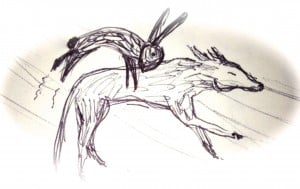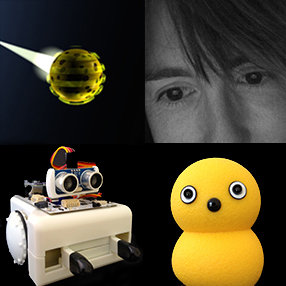 While Chomsky, at least in his political work, operates most comfortably at the level of empirical data and relies on his encyclopedic grasp of the facts to assault his opponents, Žižek is more interested in the ways people comprehend those facts, in the symbolic laws and regulations that frame their understanding of the world. Thus, if Chomsky emphasises facts, Žižek’s primary concern is the ideological framework colouring their interpretation.
While Chomsky, at least in his political work, operates most comfortably at the level of empirical data and relies on his encyclopedic grasp of the facts to assault his opponents, Žižek is more interested in the ways people comprehend those facts, in the symbolic laws and regulations that frame their understanding of the world. Thus, if Chomsky emphasises facts, Žižek’s primary concern is the ideological framework colouring their interpretation.
Importantly, these two positions are not as diametrically opposed as they may initially appear. What we have here is not an irreconcilable contradiction but a case of different dimensions. In their remarks, Chomsky and Žižek simply do not inhabit the same plane. They are operating from different levels of abstraction, both of which, I claim, are important and necessary for political struggle.
(Greg Burris, What the Chomsky-Žižek debate tells us about Snowden’s NSA revelations, in The Guardian, Comment is Free, Sunday 11 August, 2013)
Since I am interested in looking at communication from a range of theoretical perspectives (some of which are incommensurable at least some of the time), this article was relevant both because it unpicked an example of communication between theorists who “do not inhabit the same plane”, and because it went on to consider how useful it is to analyse a political situation from the disparate perspectives they offer.
I was also reminded of the work of Mary Midgley and her explanations of the importance of realising that pluralism in science is useful as opposed to being a problem that must be overcome. Midgley equates different scientific perspectives with the range of world maps on the early pages of an atlas, which may show population, climate, political boundaries etc. and therefore appear very different from one another. She goes on to suggest:
 We have to see the different maps as answering different kinds of question, questions which arise from different angles in different contexts. … The plurality that results is still perfectly rational. It does not drop us into anarchy or chaos.
We have to see the different maps as answering different kinds of question, questions which arise from different angles in different contexts. … The plurality that results is still perfectly rational. It does not drop us into anarchy or chaos.
(Science and Poetry, 2002, p. 82)
In The Myths We Live By, Midgley offers another way of thinking about the idea of pluralism (and this is the one referred to in the title of my post):
 another image that I have found helpful on this point is that of the world as a huge aquarium. We cannot see it as a whole from above, so we peer in at it through a number of small windows. … We can eventually make quite a lot of sense of this habitat if we patiently put together the data from different angles.
another image that I have found helpful on this point is that of the world as a huge aquarium. We cannot see it as a whole from above, so we peer in at it through a number of small windows. … We can eventually make quite a lot of sense of this habitat if we patiently put together the data from different angles.
(2004, p. 40)
I am aware, even as I consider the different world views of Chomsky and Žižek, that I place a great weight on the importance of identifying personal or ideological biases and assumptions that colour one’s argument. Therefore, while I might find Žižek very difficult to understand much of the time, I think that this makes me more open to his style of critique, as opposed to Chomsky’s empirical stance which, as Burris notes, “downplays or even ignores his own ideological presuppositions”. However, in spite of my personal bias, I can see it is important always to remember Midgley’s warning that “if we insist that our own window is the only one worth looking through, we shall not get very far” (2004, p. 40).


